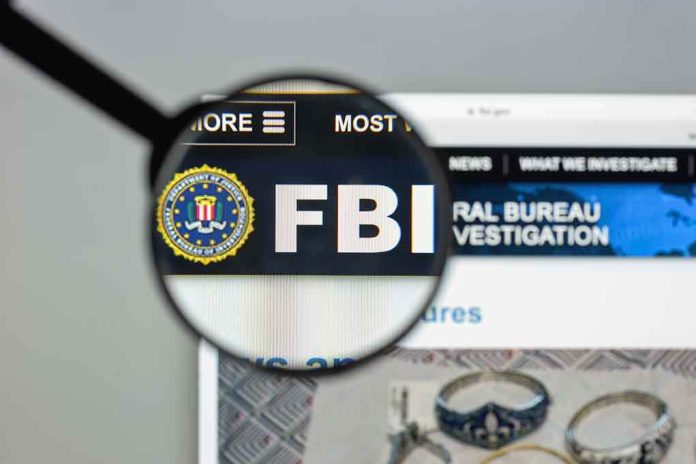
Despite a promised wave of transparency, the federal government’s release of the long-awaited Epstein files leaves more questions than answers—fueling suspicions of a high-level smokescreen that shields the powerful and frustrates those demanding real justice.
Story Snapshot
- The DOJ and FBI released only a fraction of Epstein’s investigative files, withholding most evidence under the guise of victim privacy.
- Officials insist there is no “client list” or blackmail material, reaffirming the suicide ruling—despite years of public skepticism.
- Over 300GB of data remains sealed, deepening doubts about government transparency and institutional accountability.
- Victims and the public remain frustrated, sensing that elite impunity has once again prevailed over real justice.
Most Epstein Files Remain Sealed Despite “Transparency” Promises
In July 2025, the Department of Justice and FBI announced the release of a summary report and selected files from the long-shrouded Jeffrey Epstein investigation. Yet the vast majority of materials, totaling more than 300GB, remain sealed from public view.
Officials cite legal and privacy constraints for extreme secrecy, but many Americans—especially those outraged by years of elite cover-ups—see this as yet another example of the government protecting the powerful while the truth stays buried.
This incomplete disclosure highlights a pattern of institutional opacity that undermines confidence in the rule of law and frustrates demands for transparency in cases that strike at the core of national values.
The summary report insists that no “client list” exists and denies any evidence of a coordinated blackmail operation involving prominent figures. While officials reaffirm the conclusion that Epstein died by suicide in 2019, this narrative has long been met with skepticism by those who recall prior government failures and broken promises.
Many see the repeated denials as convenient for those in power, leaving ordinary Americans doubtful that the full extent of Epstein’s network—or its protection—will ever be revealed. The decision to keep most evidence sealed only amplifies perceptions of a smokescreen rather than a true reckoning with past abuses.
Victim Privacy vs. Public Accountability: Tensions Remain Unresolved
Federal authorities justify withholding the bulk of Epstein-related evidence by citing the privacy rights and trauma suffered by over a thousand identified victims. While protecting victims is a legitimate concern, critics argue that this rationale is now being wielded to avoid exposing the full scale of elite complicity and institutional failures.
The case has become emblematic of the tension between the need for victim protection and the broader public’s right to know how such egregious abuses could occur—and who may have aided or enabled them. For many, the lack of full disclosure perpetuates a sense of injustice and fuels ongoing distrust in government accountability.
Victim advocacy groups and legal experts acknowledge the difficult balance between transparency and privacy, but conservative Americans are demanding answers that go beyond carefully curated summaries.
They see the selective release of files as a tactic that prioritizes bureaucratic convenience and legal risk management over genuine accountability. As long as the most sensitive and potentially explosive evidence remains hidden, suspicions of a cover-up will continue to dominate public discourse, keeping wounds open and doubts alive.
Enduring Distrust in Official Narratives Fuels Calls for Reform
Despite official statements declaring the investigation closed and denying the existence of a “client list,” skepticism remains widespread. The history of Epstein’s 2008 plea deal, the 2019 jailhouse death under suspicious circumstances, and the subsequent conviction of Ghislaine Maxwell have all contributed to a climate of distrust.
For many conservatives and everyday Americans alike, the case stands as a symbol of how the politically connected can evade real consequences—while institutions cite legal technicalities to avoid uncomfortable truths.
The government’s insistence that “perpetuating unfounded theories… serves neither justice nor victims” rings hollow to those who have seen too many examples of elite impunity and constitutional erosion.
Looking forward, the limited release of Epstein files will likely reinforce calls for reform and greater oversight of federal law enforcement.
The demand for real transparency and accountability is not about conspiracy—it is about upholding American values, honoring victims, and ensuring that no one, no matter how powerful, stands above the law. Until the government confronts its own history of secrecy and delivers a full accounting, the frustration and suspicion among the public will only grow.
Sources:
DOJ/FBI Memo, July 2025: Official summary and findings regarding the Epstein files and investigation





